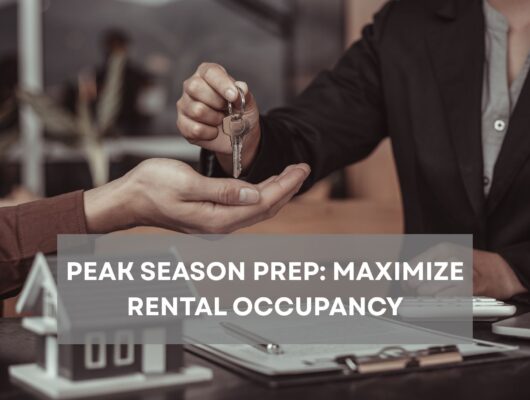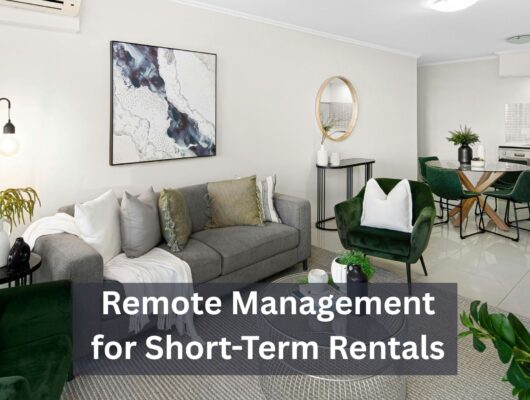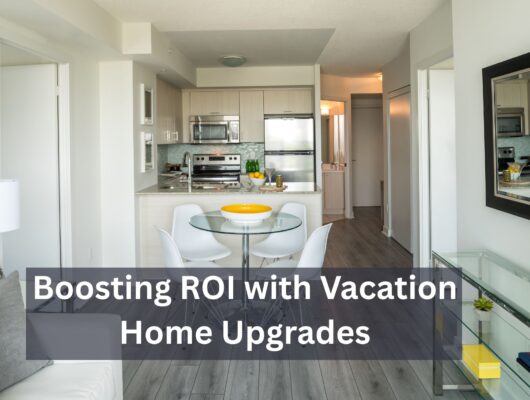How to Build Positive Relationships with Neighbors in Short-Term Rental Communities
Short-term rentals can bring economic benefits to homeowners, but they also require responsible management to maintain neighborhood harmony. Properties in residential communities need clear guest guidelines, proactive communication, and a responsive approach to concerns to ensure smooth operations and avoid conflicts with neighbors.
In this guide, we’ll cover best practices for building positive relationships with neighbors, helping to create a sustainable and respectful short-term rental environment.
1. Open Communication and Neighbor Introductions
Why Communication Matters in Short-Term Rentals
Establishing trust and transparency with neighbors prevents misunderstandings and reduces complaints about guest behavior. A proactive approach helps neighbors feel respected and heard, ensuring a cooperative environment.
How to Introduce Yourself and Build Trust
- Provide Your Contact Information
- Let neighbors know they can reach out to you directly with concerns.
- Offer a backup emergency contact in case you are unavailable.
- Address Potential Concerns Early
- Reassure neighbors about your policies on noise, parking, and guest limits.
- Explain how you screen guests and enforce house rules.
- Show Responsibility as a Rental Owner
- Regularly check in with neighbors to address concerns before they escalate.
- Keep the exterior of your property well-maintained to reflect responsible ownership.
📌 Pro Tip: A personal introduction and ongoing communication set the tone for a respectful relationship, preventing complaints before they arise.
2. Setting Clear Quiet Hours and Guest Rules
Why Establishing Guest Rules Benefits Both Hosts and Neighbors
Guests often do not know or consider neighborhood expectations, making it crucial for hosts to set clear guidelines. Establishing quiet hours and guest rules demonstrates respect for the community while maintaining a positive rental reputation.
Best Practices for Implementing Quiet Hours
- Specify Quiet Hours in Your Listing
- Clearly state enforced quiet hours (e.g., 10 PM – 7 AM) in your Airbnb description and house manual.
- Reinforce these rules through pre-check-in messages and in-property signage.
- Use Noise Monitoring Devices
- Non-invasive noise sensors can detect loud activity and send alerts without violating guest privacy.
- If noise levels exceed limits, automated notifications can remind guests to lower the volume.
- Create Guidelines for Outdoor Spaces
- If the property has a patio, balcony, or backyard, remind guests to keep outdoor gatherings quiet.
- Consider limiting late-night use of hot tubs, fire pits, or outdoor seating areas.
Guest Guidelines for a Neighbor-Friendly Rental
✔️ Parking Rules: Ensure guests do not block driveways or park in restricted areas.
✔️ Trash Disposal: Provide clear instructions for waste disposal and recycling to keep the property tidy.
✔️ Outdoor Behavior: Limit excessive noise, particularly for properties with balconies or shared walls.
📌 Pro Tip: Consistently enforcing rules protects your relationship with neighbors and enhances guest accountability.
3. Addressing Neighbor Concerns Promptly
Why Fast Response to Issues is Critical
Ignoring neighbor complaints can harm your reputation and lead to disputes, which may result in city restrictions or HOA intervention. A quick and professional response helps de-escalate situations and demonstrates responsible hosting.
How to Handle Neighbor Concerns Effectively
- Take Immediate Action on Complaints
- If a neighbor reports an issue, contact the guest immediately to address the problem.
- If necessary, offer alternative solutions (e.g., relocating guests who violate rules).
- Regularly Follow Up with Neighbors
- Periodically check in with neighbors to ensure they are comfortable with your rental operations.
- If you’ve addressed a past concern, ask if improvements have been noticed.
- Document and Address Recurring Issues
- Keep records of complaints and resolutions to track potential long-term issues.
- If specific guests frequently cause problems, consider adjusting booking criteria or guest screening processes.
📌 Pro Tip: A rental property that maintains positive neighbor relations is more sustainable, avoiding city restrictions or legal complications.
4. Enhancing Community Involvement for Long-Term Success
Why Community Engagement Strengthens Neighbor Relations
Being an active and responsible member of the community improves perception of your short-term rental and encourages cooperation.
Ways to Engage with the Community as a Short-Term Rental Host
- Support Local Businesses
- Recommend nearby restaurants, coffee shops, and local attractions in your guest guide.
- Encourage guests to shop at local markets and attend community events.
- Respect Homeowner Association (HOA) Rules
- If your property is within an HOA, ensure compliance with rental restrictions and community guidelines.
- Attend HOA meetings when possible to stay informed and involved.
- Contribute to Neighborhood Initiatives
- Participate in neighborhood clean-up efforts or local improvement projects.
- Maintain the exterior of your rental property to match community standards.
📌 Pro Tip: Hosts who actively contribute to their community build goodwill and trust, reducing resistance to short-term rentals.
Final Thoughts: How to Maintain Positive Relationships in Short-Term Rental Communities
✔️ Introduce yourself to neighbors and provide direct contact information to address concerns.
✔️ Set clear guest rules and enforce quiet hours to prevent disturbances.
✔️ Respond promptly to neighbor concerns to demonstrate responsibility.
✔️ Engage with the community to build trust and long-term support.
By fostering a respectful and transparent relationship with neighbors, you can create a sustainable, high-performing short-term rental that integrates well into the community.
📌 Looking to improve neighbor relations? Start implementing these strategies today to ensure a successful and complaint-free rental business!
FAQs About Managing Neighbor Relations in Short-Term Rentals
1. How can I introduce myself to my neighbors as a short-term rental owner?
- Knock on their door or send a friendly letter explaining your rental.
- Provide your direct contact information and explain how you manage guest behavior.
2. What should I do if a neighbor complains about my Airbnb?
- Acknowledge their concern immediately and take action if necessary.
- Follow up after resolving the issue to ensure they are satisfied.
3. How do I ensure guests follow quiet hours?
- List quiet hours clearly in the rental description and house manual.
- Use noise monitors to detect excessive volume levels.
- Remind guests via messages before check-in.
4. Can neighbors report my short-term rental to local authorities?
Yes, if noise or disturbances repeatedly occur, neighbors may file complaints with the city, HOA, or landlord. Maintaining clear guest rules and swift issue resolution helps prevent escalation.
5. What’s the best way to prevent neighbor disputes before they start?
- Be proactive—introduce yourself and set expectations early.
- Enforce house rules through clear communication with guests.
- Keep the property well-maintained to reflect responsible ownership.




